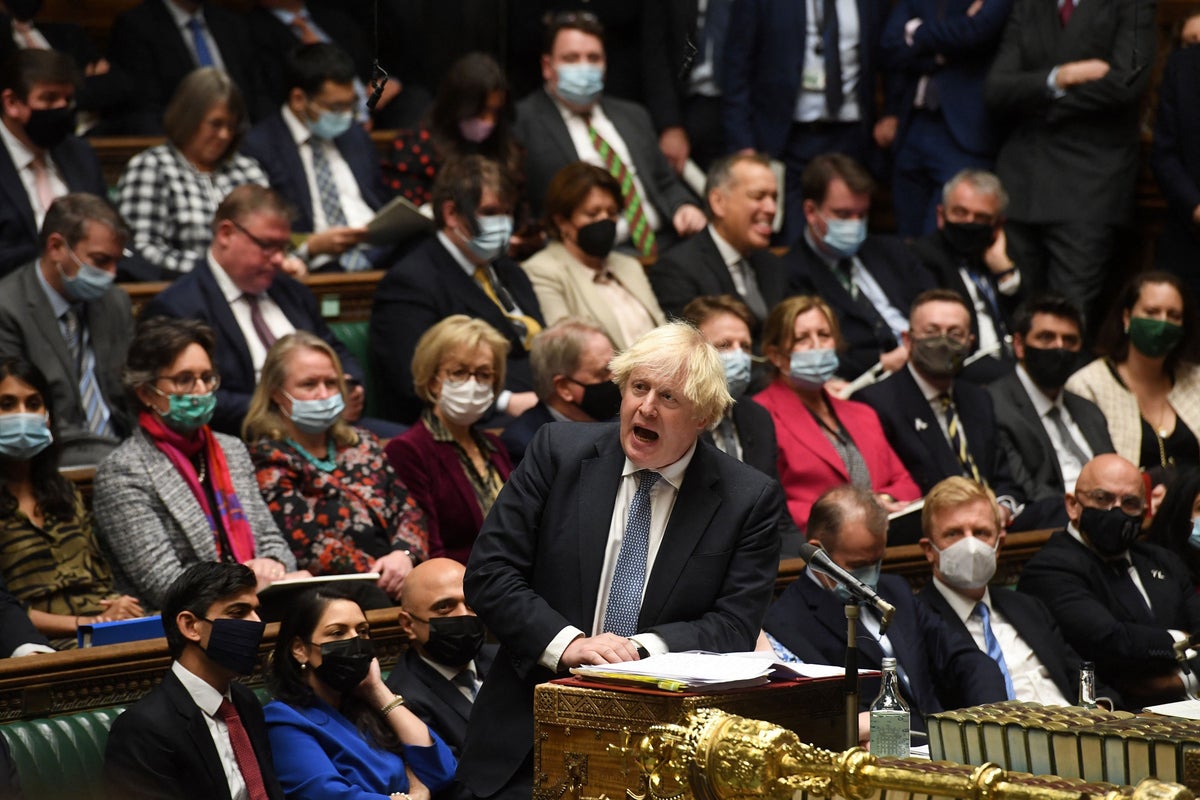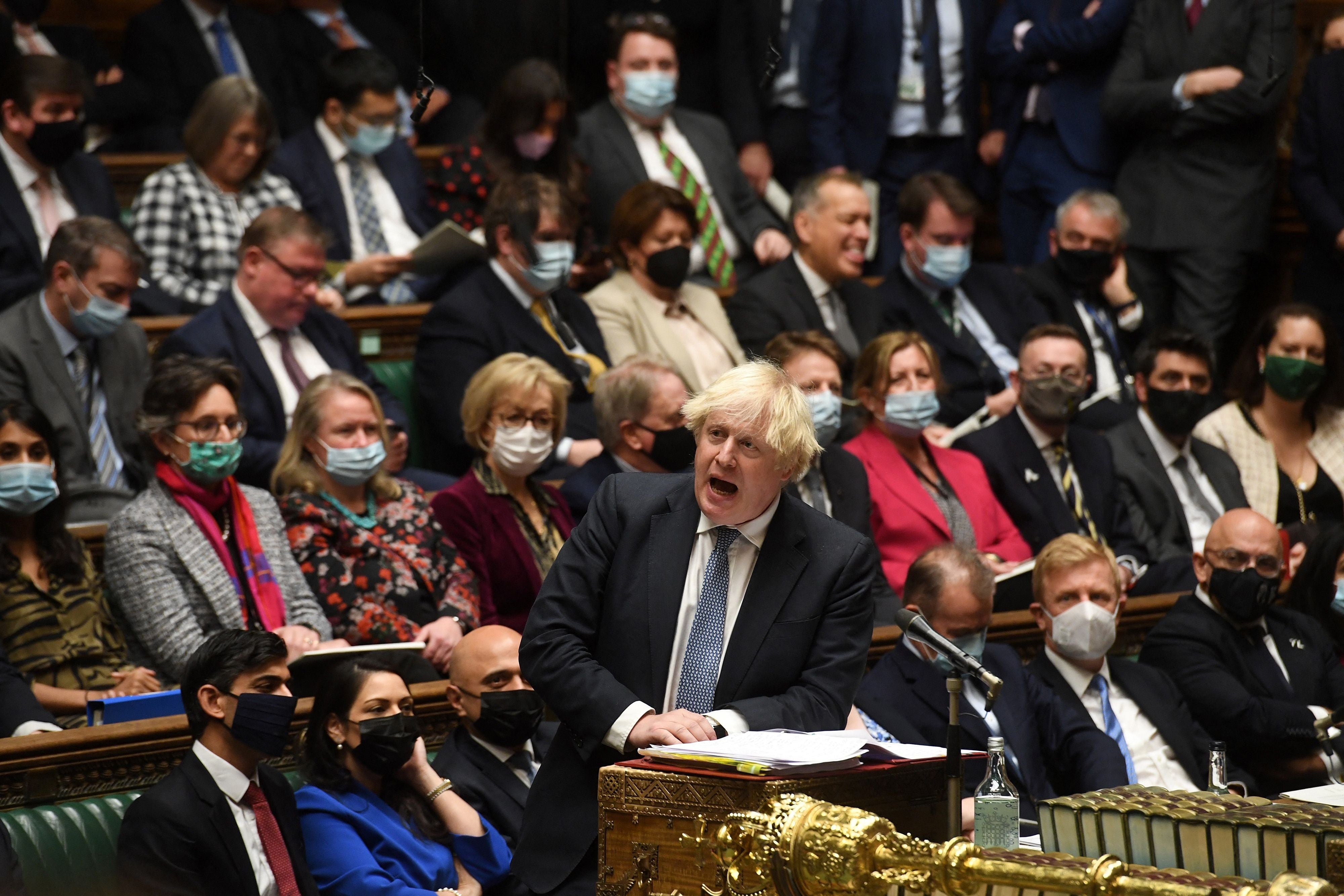
They were the 12 words that ultimately brought down a prime minister and if Boris Johnson didn’t know it then, he will almost certainly know it now.
In a Commons showing believed to have been key to the findings of the report, the then prime minister stood at the despatch box at Prime Minister’s Questions at 12.28pm on Wednesday, 8 December 2021. He was answering a question from Labour MP Catherine West, eight days after the first reports of Downing Street gatherings emerged.
With a knowing smile, Ms West asked Mr Johnson to tell the house “whether there was a party in Downing Street on 13 November”.
He stood up calmly, placing his notes on the historic despatch box, telling her firmly, “No,” before adding, “the guidance was followed and the rules were followed at all times”.
But just a few hours earlier, two of Mr Johnson’s top aides had urged him against making this very claim. Mr Johnson’s former communications chief Jack Doyle and Martin Reynolds, his principal private secretary, are reported to have warned that any assertion that guidance and rules had been followed may not stand up to scrutiny.
In evidence submitted to a Privileges Committee investigation into whether Mr Johnson deliberately or recklessly misled MPs, Mr Reynolds confirmed he asked the then prime minister ahead of the session “about the line proposed for PMQs”. “He did not welcome the interruption but told me that he had received reassurances that the comms event was within the rules”, Mr Reynolds said.
And in an admission which, according to The Times, was crucial in the committee’s finding that Mr Johnson deliberately misled the Commons, Mr Reynolds said: “I accepted this but questioned whether it was realistic to argue that all guidance had been followed at all times, given the nature of the working environment in No 10. He agreed to delete the reference to the guidance.”
In a statement to the Commons opening PMQs, Mr Johnson said: “I have been repeatedly assured since these allegations emerged that there was no party and that no Covid rules were broken. And that is what i have been repeatedly assured.”
Just thirty minutes later, Mr Johnson told MPs “the guidance was followed and the rules were followed at all times”.
In the 18 months since, this statement has pushed Mr Johnson not just out of office as prime minister but ultimately out of parliament altogether.
First, investigations by the Metropolitan Police and Partygate investigator Sue Gray confirmed that, as well as gatherings on at least seven other dates, there had been a party on 13 November in No 10, in breach of Covid-19 restrictions. Mr Johnson, too, was handed a £50 penalty by police for his own lockdown breach, at his birthday bash in the Cabinet Room on 19 June 2020.

Now, more than a year since its inquiries began, the Privileges Committee is set to conclude that Mr Johnson’s response to Ms West in parliament deliberately misled the House of Commons – breaching the MPs’ Code of Conduct.
Commons rules state MPs – and especially ministers – must not give inaccurate information to parliament, either deliberately or inadvertently.
Giving evidence to the committee, Mr Johnson insisted mid-pandemic gatherings in Downing Street were “essential” and stated he had been “misremembering” when claiming during Partygate that rules had been followed at all times.
Mr Johnson also claimed to have been “relying on the advice of officials” when answering questions in parliament. Central to his defence was the claim that he had been given “repeated assurances” that the Covid rules and guidance had been followed by advisers.
But the committee was not convinced, with its findings set to recommend Mr Johnson be suspended from parliament for long enough to trigger a vote in the Commons on whether he should face a by-election in his Uxbridge and South Ruislip seat.
An early version of this report prompted his bombshell resignation on Friday, as Mr Johnson bids to avoid putting his fate in the hands of MPs or his constituents.
A politician who built and burnished his image on his colourful metaphors, verbosity and command of the English language, Mr Johnson was ultimately undone by 12 simple words.







